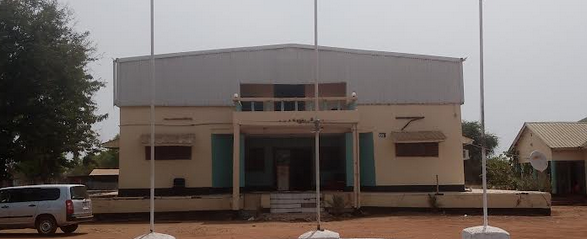A rift has emerged between the executive and parliament in Eastern Equatoria State, with the former rejecting the fiscal budget passed by state lawmakers.
Late last month, the state’s parliament unanimously passed the 2022/23 fiscal budget that was presented by the finance minister with amendments that seem to have upset the executive.
The passed budget amounts to SSP 5,368,720,101, the exact figure presented to parliament by the finance minister in late February. However, the legislators appropriated some funds from certain budget lines and gave them to others they deemed needed more funds because they are service-oriented institutions.
In the budget seen by Radio Tamazuj, SSP 11 million for social benefits was removed from the secretariat general, 7 million meant for capital expenditure from the cabinet affairs ministry, and 7 million from the parliamentary and legal affairs ministry since they are within the secretariat general. Also, 2.7 million earmarked for specialized equipment and medicals was removed from the peacebuilding ministry, and 2 million was removed from the anti-corruption body among other deductions to be added to services.
Further, SSP 2,500,000 was removed from conflict resolution, 5 million from the Relief and Rehabilitation Commission (RRC), 20 million from the local government ministry meant for travel, 4 million from the State Revenue Authority, 6 million from the Insurance and Regulatory Commission, and 6.5 million from the finance ministry respectively.
The legislators reallocated 42,750,000 to themselves, the Eastern Equatoria Transitional Legislative Assembly, 3 million to the ministry of gender, child and social welfare, 1 million to trade and industry, 1 million to youth culture and sports, 6 million to the ministry of health, 1 million to housing, lands, and public utilities and 20 million to the roads ministry.
Interestingly, the 2022/23 financial year is about to come to a close in a few months.
Article 83 (1) of the transitional constitution of Eastern Equatoria State says that the governor shall cause to be presented to the assembly before the beginning of the financial year, a Bill for the allocation of state resources and revenue. The assembly however has the right to approve, modify or even reject the bill.
Speaking to the media after an extraordinary council of ministers meeting last week, Information Minister Patrick Oting Cyprian said the cabinet resolved that the budget needs to be discussed again in the parliament.
“The minister of finance presented the budget which had been passed by the cabinet to parliament which sat and went through the entire budget of the fiscal year 2022/2023. There was some money that they (parliament) readjusted from some institutions and then also allocated them to other institutions,” he explained. “We went through it (budget) as the council of ministers. Although we respect the parliament, the money they removed from some of these institutions was not even indicated, and no reasons were given. Some money was even removed from another institution and given to parliament without reason.”
Oting said the governor is going to write to the parliament over the impasse and another sitting will be called to address the issue.
However, the speaker of the Eastern Equatoria State Legislative Assembly, Severino Maira Janus, dismissed and rejected the plan by the executive to bring the passed budget back to the house.
“It is completely wrong. We have a process and the thing has to be deliberated in the council of ministers, and that is where the budget emanated. After they passed it, they brought it to parliament. The constitution of the state was made to guide the government,” he said. “So, taking this bill back again to the council of ministers for it to again be brought to the assembly? I think nobody will be willing to attend to it unless we are saying that this government of Eastern Equatoria is only being run by the executive.”
The speaker said they reallocated some of the monies in the budget in the interest of the people of the state.
“By giving money to the ministries of health, transport, and housing, has the assembly done something wrong?” he asked. “Our people should have clean drinking water, and giving money to the youth ministry is to serve the youth.”
“In simple terms, to discuss this budget again in the council of ministers is unconstitutional,” Maira charged.
Meanwhile, Vitale Ofire Raphael, the SPLM-IO chief whip in the Eastern Equatoria State Legislative Assembly, confirmed that the house has flatly rejected any attempts to reopen discussions about the passed budget.
“The governor wrote a letter to us to answer some of his observations on the budget we passed on 28 February, and we have already answered him. He (the governor) was saying we (parliamentarians) will not go for recess because there is no money, but we said what about the budget we have passed? Where did it go,” he said. “So, he (governor) was not clear from the beginning, and that is why we asked him to show us his observations because we (parliament) are the final institution of the state, and once we pass a budget, then nobody except the governor can assent it into law for it to be operational.”




